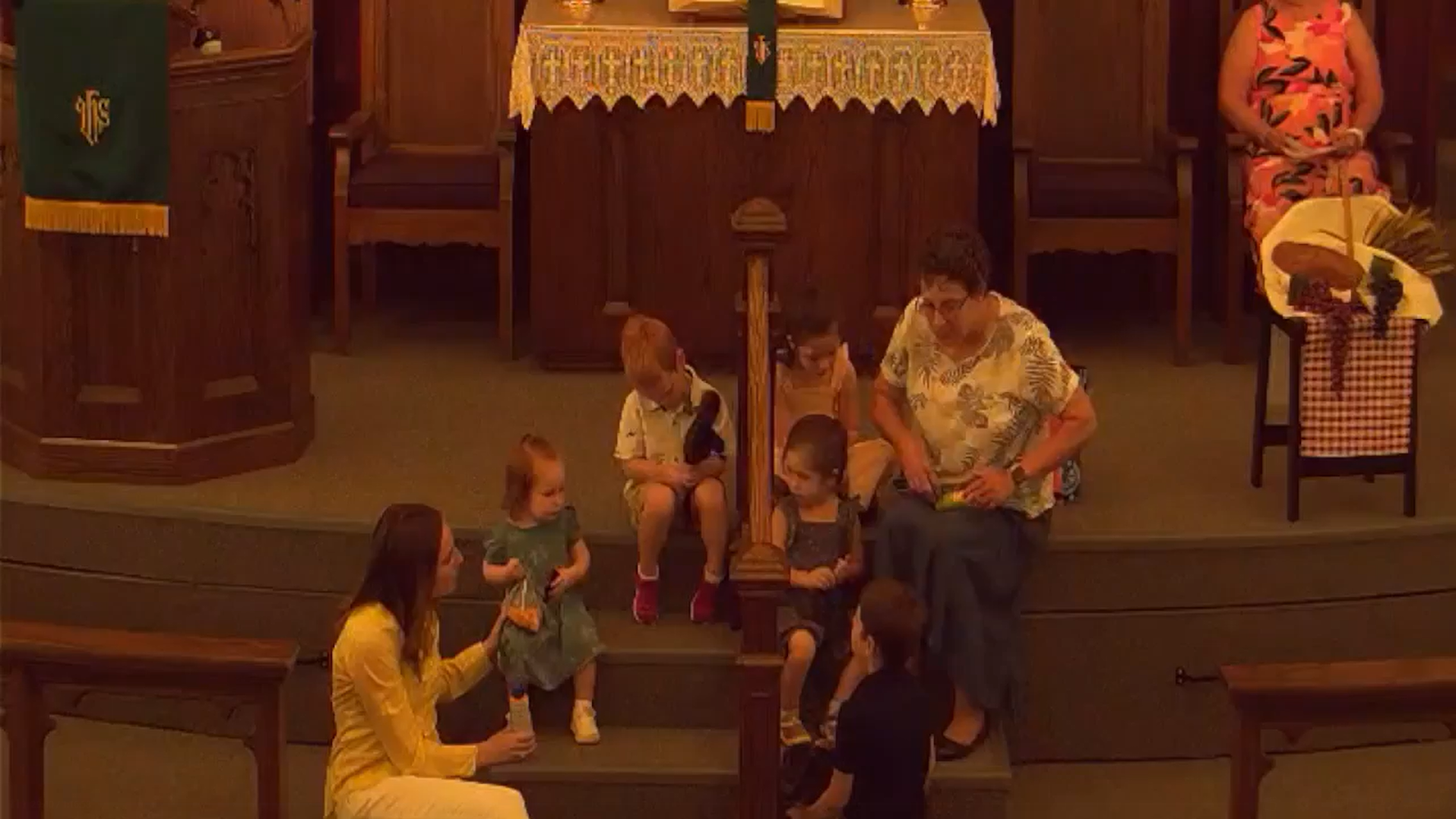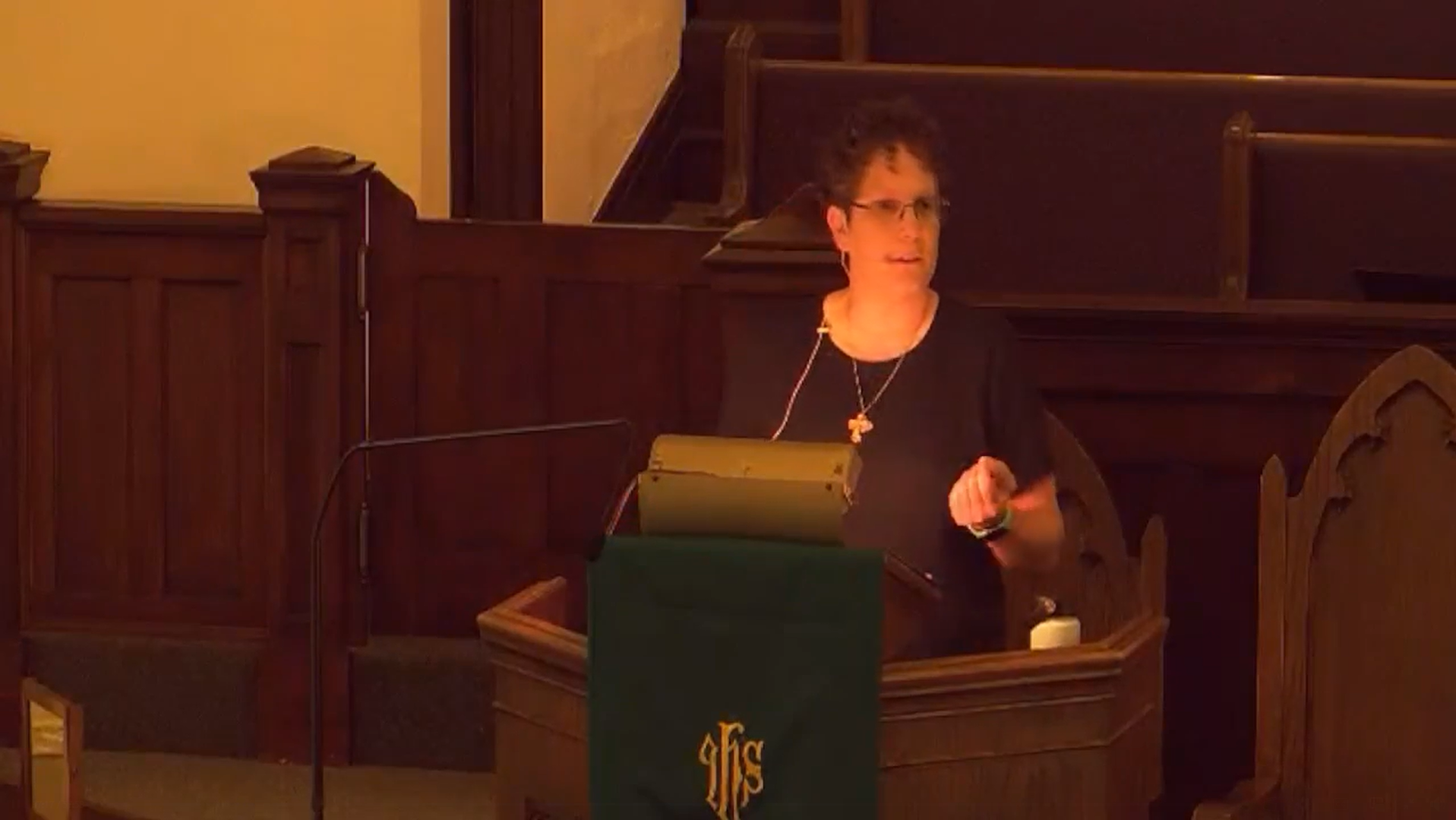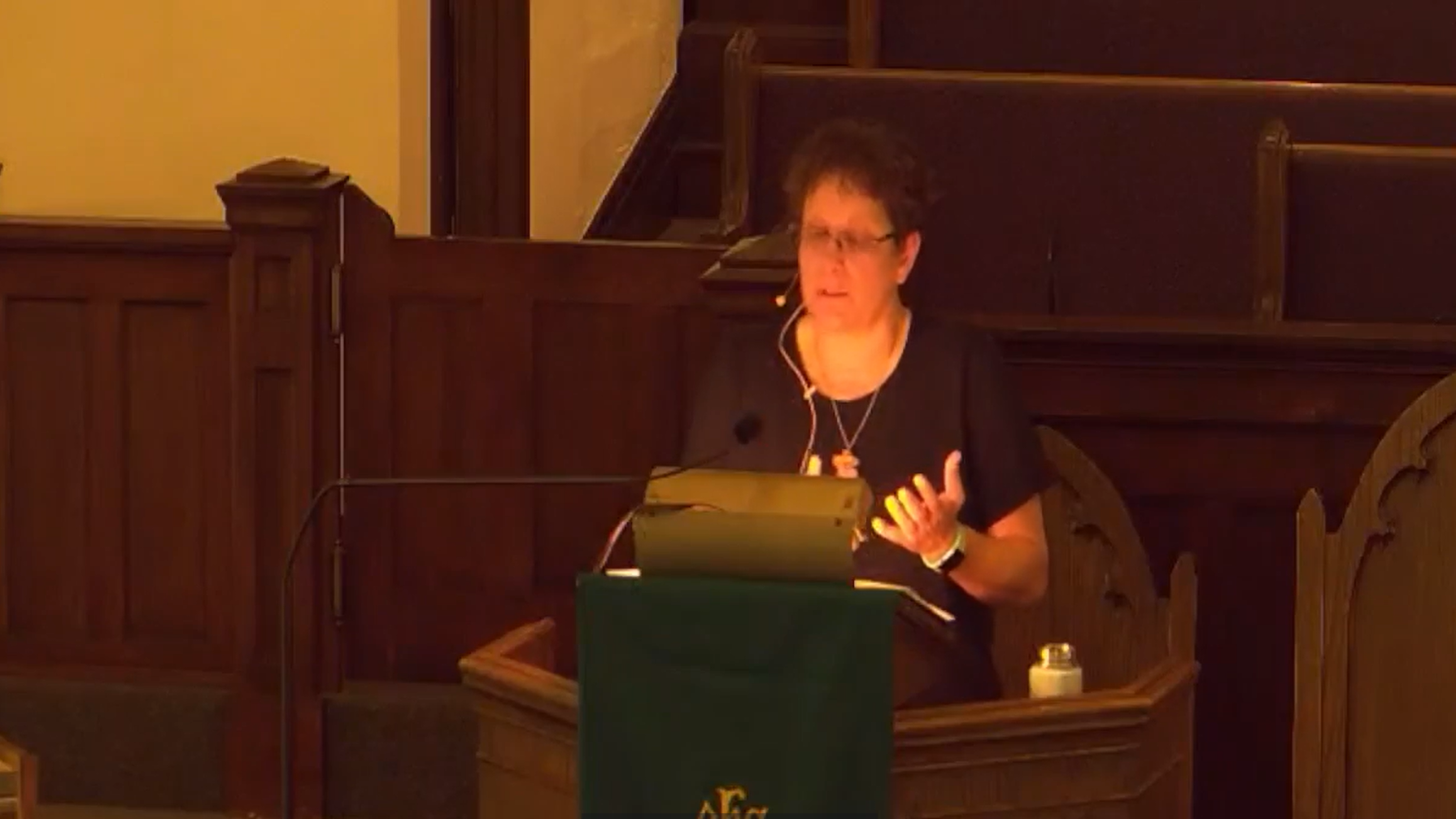
The challenge here is to those of us who already consider ourselves disciples. Jesus keeps stretching our faith. Jesus keeps saying, “You have come this far, come a little farther. You have committed this much, commit a little more. You love these people, now open your arms to these people.

But can we really give thanks for all things at all times in a world that, even though God may be gathering up (or has gathered up) all things in Christ, still hasn’t fully realized that redemption? Do we have to forget all the brokenness in the world and simply give thanks to God for all that is? No. The call to give thanks is not a call to forget but, in fact, to remember. Part of what it means to be children of God is to be attentive to what is possible, even when we can’t clearly see it.

He wasn’t interested in being the bread provider. He wasn’t interested in being King. And he wasn’t interested in making people’s lives easier by providing manna everyday. He wanted us to recognize that in him there is life – an everlasting life. Bread sustains life, but you have to eat it everyday.
Browse all of the Sermons and Messages
There are at least a couple of books entitled The Road; the first one I began reading because I read it was is a classic and among the top reads of the century, so I thought it would be a good choice. I decided about halfway through that just because a book is called a classic doesn’t mean I have to like it or finish reading it, so I stopped and picked up a second book with the same title.
Our daughter ran in high school. Her two main events were the 800 meter run and the 3200 relay. Over the years I watched a lot of relay teams passing off a lot of batons, and as you might expect, there is an art in doing that well. Both the one who hands off the baton and the one who receives it needs to be confident in what they’re doing and in what their teammate is going to do, in order that the race can continue as seamlessly as possible. The outcome of the race depends upon their ability to make a good exchange.
I check out one of the news outlets daily summaries each morning so I have an idea of what’s happening in the world. It’s too easy for me to get caught up in what’s happening here and now in my own space, and doing that helps me to look out a little further into the larger space of what’s happening in the world.
Perhaps you and I take for granted the opportunity to learn in this day and age. In this nation we consider it our “right” to receive a basic education so we can make choices that will help us be successful in our lives.
It is officially the fourth Sunday of Easter on our liturgical calendar, sometimes called Good Shepherd Sunday, and the texts are filled with shepherds and sheep. The imagery of God as the Good Shepherd isn’t unique to Psalm 23, God is often described as a shepherd who leads, protects, comforts and nurtures God’s people.
Hearing that announcement can fill you with a sense of peace and comfort knowing that you have a group of people who love you and are ready to stand by you through thick and thin, or it can cause you to shutter as you wonder: Oh, my! Will I be like that someday?!
Poor Thomas. All these years later, he’s still most known for his weakest moment. It’s sad. Still, we can’t honestly think bad of him, can we? He’s us in a whole lot of ways: that little voice inside us that resists easy answers to hard questions about faith, who might like a little proof, even though we realize that proof and faith don’t always work very well together in the same sentence.
It’s a familiar story that we read from out of one of the Gospels each year. We hear it from different perspectives; different details that don’t exactly fit together like pieces of a puzzle—and yet somehow they all tell us the mysterious story of the resurrection of Jesus Christ from the dead.
Palm Sunday 2021. It is a day of mixed emotions, isn’t it? I am so pleased to be able to come together face-to-face in a sanctuary this a.m. Last Palm Sunday we were in our 3rd week of online services only, and none of us had any idea at that point that our best option for the next year would be to gather online only.
There are times when it feels like you’re “large and in charge” and things are going your way—just the way you always hoped they would be. You’re calling the shots, setting the schedule, making the decisions. And then something happens and the rug is pulled out from under your feet. It all changes in a heartbeat.
Wrapped within this morning’s scripture is one of the most familiar passages to contemporary Christians—and perhaps to non-Christians, as well. The actual words of John 3:16 may not be known to the viewer who sees the two-toned-face-painted football fan standing in the bleachers at the endzone, holding his John 3:16 sign, but there you’ll see it, just the same.
Perhaps because of the setting in which I’ve worked for 30 some years, I have on many occasions, enjoyed taking the opportunity to go and sit in the sanctuary of the churches I’ve served during the week, when no one was around, to simply breath in the peace of that space.
In Blessed Bookies this week, we discussed a book that touched on a number of themes, including a dying man’s reflection on whether or not he had made the right choices in his life, and had lived in the best way he could have. He wondered if his life had had meaning and purpose.
I’m not a detail person. Never have been. I tend to be able to see the big picture and then have to spend more time detailing out the various steps to get there. Scott isn’t a detail person, either, and that has worked for us, somehow. But we gave birth to a child who—even as a little girl—would see little things and ask us about them, and we’d look at her, and go—what?
There’s the temptation to just stay there… Maybe it’s a particular place where you’ve visited…where the weather is fair, where they don’t “do” snow-shovels, where you can hear seagulls and waves crashing. You could get used to that.
The national economic shutdown caused by the COVID-19 pandemic forced most of the world to hit “Pause” on our work and our social activities and our plans for the future. Businesses shut down overnight. Churches closed their doors. Weddings and funerals and graduations were postponed, or significantly altered.
At the crossroads of faith we come today to discuss the question of immortality. Yet to explain the unexplainable and to describe the indescribable and to peek through the shadows of earth and catch a glimpse of eternity is often more than our grieving minds can grasp and our questioning intellects can assimilate.
In this third week of our series, God is Holding Your Life, I want us to hear/to experience the confidence proclaimed in Psalm 139 that God is with us from the time of our creation to the time when the grave is made our bed—and every moment in between.
Do you lift your eyes up and turn to God when something happens in your life that you’re not sure how to deal with? Do you see God when you look out into the world and see beauty? A pink sunrise or an orange sunset introducing the new day or night? When you see the sun shine on frost-covered trees?
The Psalm we’ve read this morning is praise and a prayer that was probably written to be repeated at the coronation of a king. According to its inscription and placement, it comes most likely when David hands over his throne to his son Solomon, who prayed to rule and to judge the people with wisdom. Like all of Israel’s kings, Solomon both succeeded and failed “royally” in that calling.
This morning’s text tells us of the magi—the wise men who came to Bethlehem to visit Jesus at the time of his birth. They are thought by Matthew to be Babylonian astrologers—not magicians, not kings, but experts with special knowledge. They have traveled a long way—nearly 1000 miles from their own home—and they are apparently unaware of the personal and political turmoil they cause as they arrive in the capital city of Jerusalem, inquiring the whereabouts of the child born to be king. Herod, the current ruler, of course found their questions to be extremely disturbing.
I John 3:1 says, “See what love the father has given us, that we should be called children of God; and that is what we are.” As we’ve listened to scripture being read this evening, we’ve been reminded of our history. From the very beginning, God has reached out to us in a variety of ways, but we haven’t always been able to listen. We haven’t always responded.
I’d like you to take just a few moments this morning and try to remember the most beautiful moment in your life. I know quiet time is a little awkward online. People just tuning in or who stepped away for a bit to refill their coffee will think something is wrong with their sound. But I’ll be quiet for just a bit so you can think.
This is the third Sunday of Advent, the Sunday that if we were all together in this place lighting our traditional Advent wreath, we would be lighting the pink candle—the candle of Joy. I purposely chose all white candles this year instead of purple and pink, so that it would be easier for you to make use of candles that you already have at home, rather than thinking it necessary to go out shopping for something in particular.

